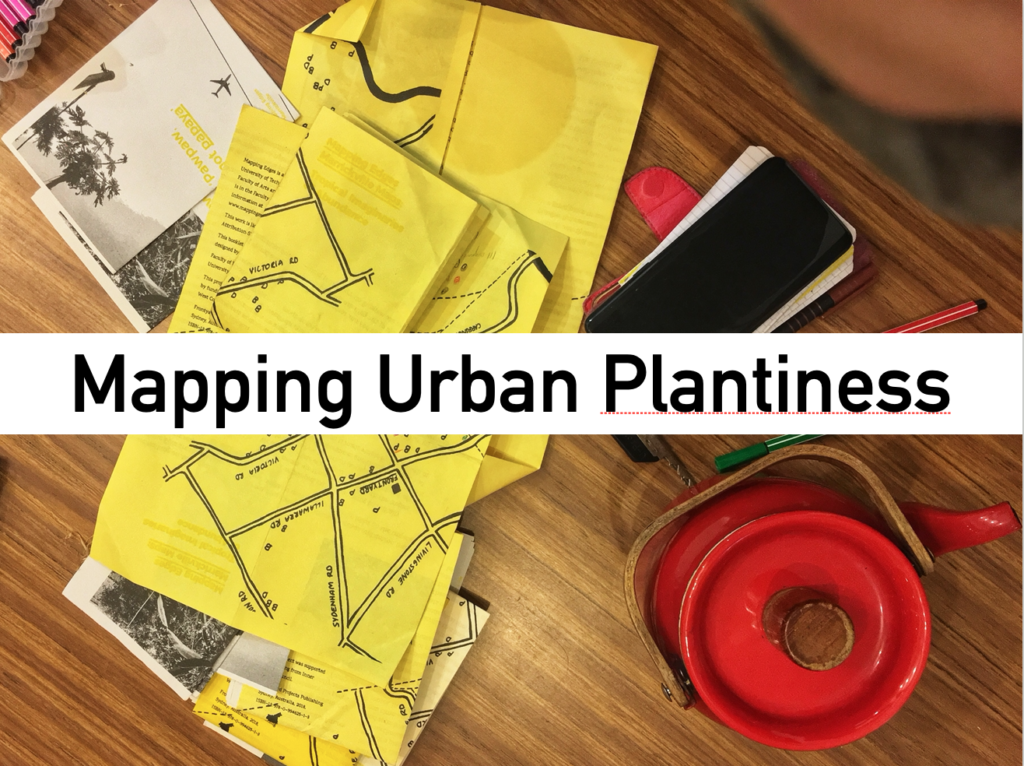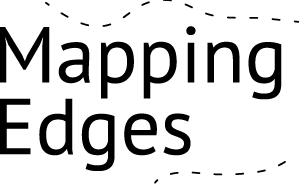
We were honoured and excited to present our research to the Livingmaps Network with Linda Knight and Alys Longley last month. We wrote about this presentation earlier, and now the webinar is available on Livingmaps’ YouTube.
Livingmaps Network writes: the webinar features three presentations by artists located in lands deeply impacted by colonisation and its residual power dynamics.
- Inefficient Mapping as an Ethical Wayfinding Practice
- Mapping Urban Plantiness
Alexandra Crosby & Ilaria Vanni introduce selected projects that seek to answer the question: how does our understanding of cultural, environmental, and social histories of place change if we let ourselves be guided by plants? The project Marrickville Walks 2017 showcases recombinant ecologies – ecologies that are the result of human interactions, such as the case with cities in settler-colonial societies. Such ecologies need a different order of maps able to place the observer back in the thick of things, and to capture the entanglements between humans and more-than-human gatherings. The second project, The Planty Atlas of UTS – 2019, maps a small inner city area around Ultimo university to spotlight some of the historical and contemporary trajectories of this area starting from Gadigal Sydney, by following plants. The third map is part of a work in progress (The Green Square Atlas of Civic Ecologies) that amplifies individual or organisations’ initiatives that bring together care for place and care for the environment in an area of large urban renewal in Sydney. Mapping Edges is a research studio that explores the relationship between plants and people and what it tells about the past, present and future of the urban environment. Alexandra Crosby, University of Technology Sydney. Associate Professor and Associate Head of the School of Design in the Faculty of Design Architecture and Building. Ilaria Vanni, University of Technology Sydney, Associate Professor in International Studies and Global Societies.
- Mapping the Aesthetic Dimensions of Power Artists
Alys Longley and Máximo Corvalán-Pincheira have been developing the art project Mapping Porous Borders / Mapeo de Bordes Porosos, since 2017, working between Aotearoa New Zealand and Chile to engage artistic mapping through installation, performance, drawing, and collaborations. Their upcoming exhibition Beberemos El Vino Nuevo, Juntos!/ Let Us Drink The New Wine Together! presents a body of artistic maps made during the pandemic by artists around the globe, which will be exhibited in both physical-museum and virtual spaces. The aim of this work is to resist isolation and border closures through artistic practices of collaboration and solidarity. They consider how artistic maps can enable us to question structures of power, space, politics, territory and control, while also opening possibilities to think worlds upside down and anew, to recognize the urgency of imagination, multi-vocality, intangible resources and more-than-human agencies. Dr Alys Longley is an interdisciplinary artist and researcher with twenty years experience in creating live performance, artist books, installations, international collaborations, artistic research projects and creative teaching projects. Alys’s books The Foreign Language of Motion (2014) and Radio Strainer (2016) are published by Winchester University Press (UK). She has co-edited the book ‘Artistic Approaches to Cultural Mapping, Activating Imaginaries and Means of Knowing’ (Routledge, 2019) and a Special Issue of City, Culture and Society with on Mapping Culture: Making the Intangible Visible (2016). Alys is an Associate Professor in Dance Studies, Faculty of Creative Arts and Industries, University of Auckland, New Zealand.
www.livingmaps.org

0 Comments